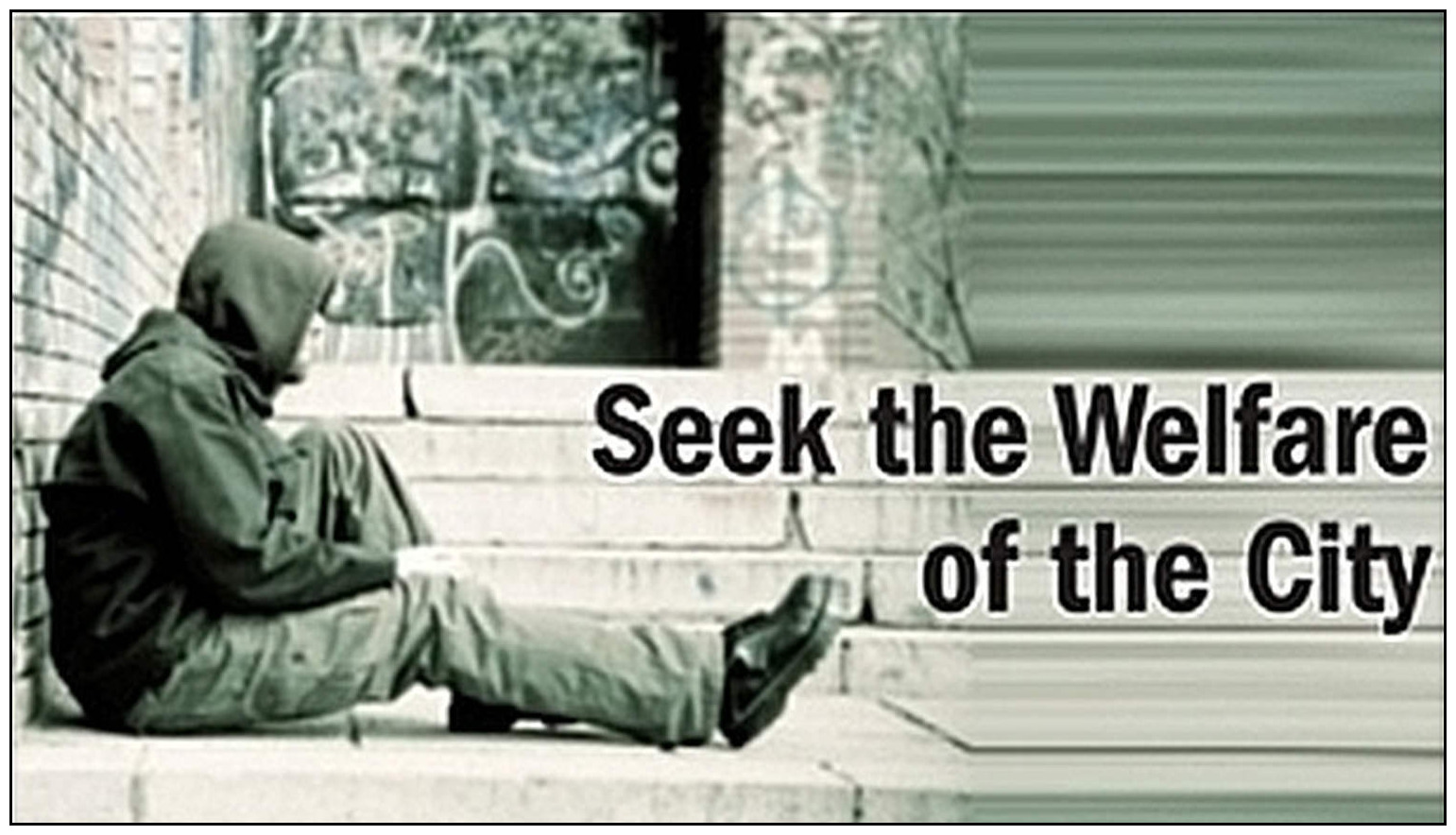Welcome to
A R C-N e w s, Jul. 13, 2024
Fortnightly Report on Christian Agape-Care
in Secular Societies, by Dr. Robert D. Hosken
The right to believe and the right to life are inseparable:
Right belief in a loving God enables us to love our neighbor!
Go to: Subscribe | The News | Our Views | Previous Issues
To read and pray for one article each day, click HERE and add the link to your browser's Bookmarks. And please share this link with your friends!
Sun. | Mon. | Tue. | Wed. | Thu. | Fri. | Sat.
Join us in our "Morning Prayers" daily at 7 a.m. & click on "AN."
WE NEED YOUR HELP! Perhaps you've read this before and are wondering, "Why am I seeing this again?" But millions of other Christians haven't seen it! So please use the "share" buttons above to share it with your social media friends. Thanks!!
SEEK THE WELFARE OF THE CITY, PART 2
 In case you're thinking "That was then, but this is now!" about Jeremiah 29:7 – "Seek the welfare of the city" – well, you're in for a surprise. It explains in Part 1 that there were beggars who refused to work, so Christian philanthropists were warned not to simply give them money: "Here we clearly see the goal of the social ministry of the Church: 'The role of social work is to make the recipient aware of the need to change' – unless the poor or disabled person makes a commitment to change, our efforts to help may be in vain." Human nature hasn't changed much in the past 2,000 years!
In case you're thinking "That was then, but this is now!" about Jeremiah 29:7 – "Seek the welfare of the city" – well, you're in for a surprise. It explains in Part 1 that there were beggars who refused to work, so Christian philanthropists were warned not to simply give them money: "Here we clearly see the goal of the social ministry of the Church: 'The role of social work is to make the recipient aware of the need to change' – unless the poor or disabled person makes a commitment to change, our efforts to help may be in vain." Human nature hasn't changed much in the past 2,000 years!
On our "Homes and Jobs" page, go to the link: "Get Your Life on Track." You'll see several Scriptures illustrating the lifestyle that Christians should have. At the bottom of that section is another link: "Do you want to be restored to wholeness?" which takes you to our Problem Assessment: Physical and Spiritual Rehabilitation Plan that we can fill out with our disabled or unemployed clients. Midway through the form, after gathering the client's work and health history, are the following words:
I want to be restored to wholeness, and therefore I am ready to change my lifestyle.
Signature: I, _________________, agree to follow the plan.
The client must be willing to change his/her mindset and lifestyle. Here is what the Apostle Paul wrote in 2 Thessalonians, chapter 3 about this:
"6 Now we command you, brothers, in the name of our Lord Jesus Christ, that you withdraw yourselves from every brother living in idleness, and not after the tradition which they received from us. 7 For you know how you ought to imitate us. For we were not idle among you, 8 neither did we eat bread from anyone's hand without paying for it, but in labor and travail worked night and day, that we might not burden any of you; 9 not because we don't have the right, but to make ourselves an example to you, that you should imitate us. 10 For even when we were with you, we commanded you this: 'If anyone is not willing to work, neither let him eat.' 11 For we hear of some who among you walk in idleness, who don't work at all, but are busybodies. 12 Now those who are that way, we command and exhort in the Lord Jesus Christ, that with quietness they work, and earn their own living. 13 But you, brothers, don't be weary in doing good. 14 If any man doesn't obey our word in this letter, note that man, that you have no fellowship with him, to the end that he may be ashamed. 15 Don't count him as an enemy, but admonish him as a brother."
What did the Early Church Fathers have to say about the above Scripture passage? –
–"Paul strongly emphasizes, in strict words of command, the importance of labor, especially manual labor, as an accompaniment to prayer and fasting. These religious acts must never substitute for hard work (Chrysostom, Augustine). Prayer without work is a pious pretext (Cyril of Alexandria). There is no inconsistency between trusting God to provide and engaging in hard work in order to support ourselves and not be a burden on others (Augustine, Caesarius of Arles). Faithful and hardworking members of the congregation must be careful to make a sharp separation between themselves and those brothers and sisters who are living in a disorderly way (John Cassian, Theodore). Paul holds himself up as "the form of a believer," expecting the Thessalonians to see in him how one ought to live (Chrysostom, Pelagius). In our pursuit of faithful discipleship we are to avoid the controversy that arises from idle questioning and curiosity (Basil). Christian brothers and sisters who depart from the discipline and charity required by faith are to be directly confronted (John Cassian). There is the very real danger that if we consort with erring brothers and sisters, we will be infected with their wrongdoing (Cyprian)." (Ancient Christian Commentary on Scripture [digital version], IVPress)
In the ancient Greco-Roman Empire it was common for the poor to attach themselves to a wealthy patron who would feed them, sometimes in exchange for being mistreated and made the butt of jokes, at other times in exchange for serving their patron. But there were some poor who would simply flatter their patrons, going from one patron's luxuriously spread table to another patron's table. This latter case was so embedded in the culture that it became the subject of ancient comedies and training in rhetoric: such people were called "parasites." In the above Scripture passage, St Paul warns against such behavior that would bring the Christian community into ridicule. St. John Chrysostom was trained by a rhetorician who used such stories, and Chrysostom adopted it in some of his writings... [read more...]







 Our friend Viktor from Wisconsin, now stuck in Ukraine, was working on a
Our friend Viktor from Wisconsin, now stuck in Ukraine, was working on a 
 Our friend Maureen in Kenya who's also in our online "
Our friend Maureen in Kenya who's also in our online "